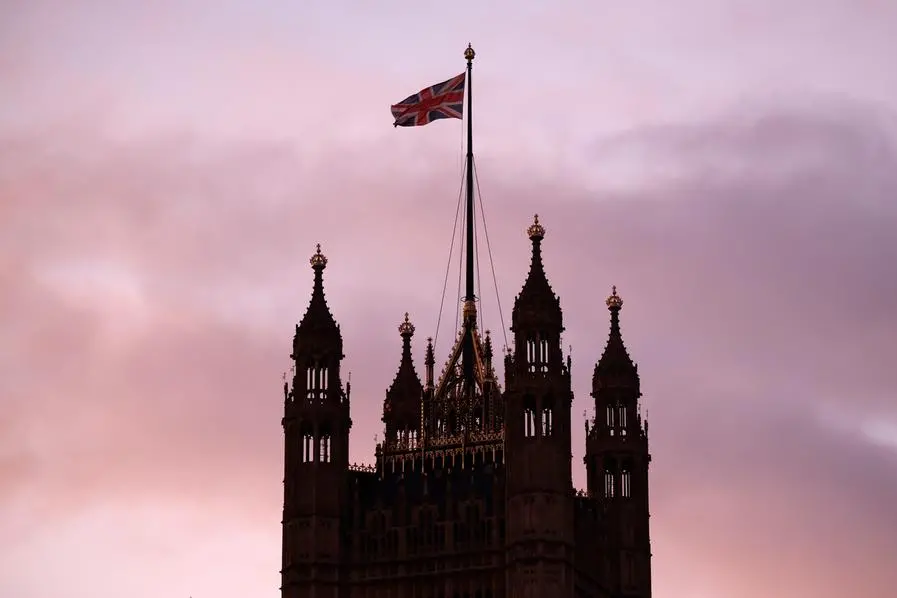PHOTO
The UK government on Tuesday issued its strongest appeal yet to unionists in Northern Ireland to restore power-sharing to the region, where tensions have risen as a result of Brexit.
The Conservative government in London called on the Democratic Unionist Party (DUP) -- its historic ally -- to embrace "real leadership" and emulate predecessors who helped forge Northern Ireland's 1998 peace accord.
The DUP, which supports Northern Ireland remaining part of the UK, has been boycotting the divided territory's government at Stormont over post-Brexit trading arrangements agreed with the European Union.
But ahead of fresh local elections next month, it has been coming under sustained pressure from London, Dublin, Brussels and Washington, peaking in a visit to the island last week by US President Joe Biden.
Northern Ireland Secretary Chris Heaton-Harris delivered the UK government's sharpest rhetoric yet, in a speech to a Belfast conference marking the 25th anniversary of the 1998 Belfast/Good Friday peace agreement.
All sides in Northern Ireland want better public services, economic prosperity and a brighter future for their children, the minister told the audience at Queen's University.
"The biggest threat to Northern Ireland's place in the (UK) union is failing to deliver on these priorities," he said.
"Others who share that (pro-UK) view should put the union first, restore the devolved institutions and get on with the job of delivering for the people of Northern Ireland."
Citing the compromises forged by diehard unionists in 1998 and subsequently, Heaton-Harris added that "real leadership is about knowing when to say yes and having the courage to do so".
- Stability -
The three-day conference in Belfast has a high-powered cast of leaders who brokered the 1998 deal, including former UK prime minister Tony Blair, then-Irish premier Bertie Ahern and ex-president Bill Clinton.
Taking part in a panel discussion Tuesday, EU Commission vice president Maros Sefcovic said he had been "listening very very carefully to all the representatives of the business community here in Northern Ireland".
"What... I heard very clearly was, they need predictability. They need stability. We need the vision of peace and we need the vision of prosperity," he said.
Sefcovic, who led talks for the new deal with the UK, added that everyone involved in resolving problems over post-Brexit trading arrangements could learn lessons from the "inclusivity" that resulted in the Good Friday agreement.
After meeting Clinton at the conference on Monday, DUP leader Jeffrey Donaldson said he had "underscored our commitment to restoring the NI Assembly on a basis that unionists as well as nationalists can support".
"Quick fixes without solid foundations will do a disservice to those trying to make the institutions work," Donaldson said.
But speaking after Heaton-Harris, Ireland's foreign minister Micheal Martin said London and Brussels had worked hard to adopt a recent reform of the post-Brexit trading arrangement to try to placate the DUP.
All leaders in Northern Ireland had the "responsibility to accept democratic outcomes", Martin said, after the DUP lost elections last year for the first time to the Irish nationalist party Sinn Fein.
"But I urge all elected representatives to take their seats in the Assembly and the Executive, and get to work on the questions of everyday life that matter to the people of Northern Ireland," he added.





















